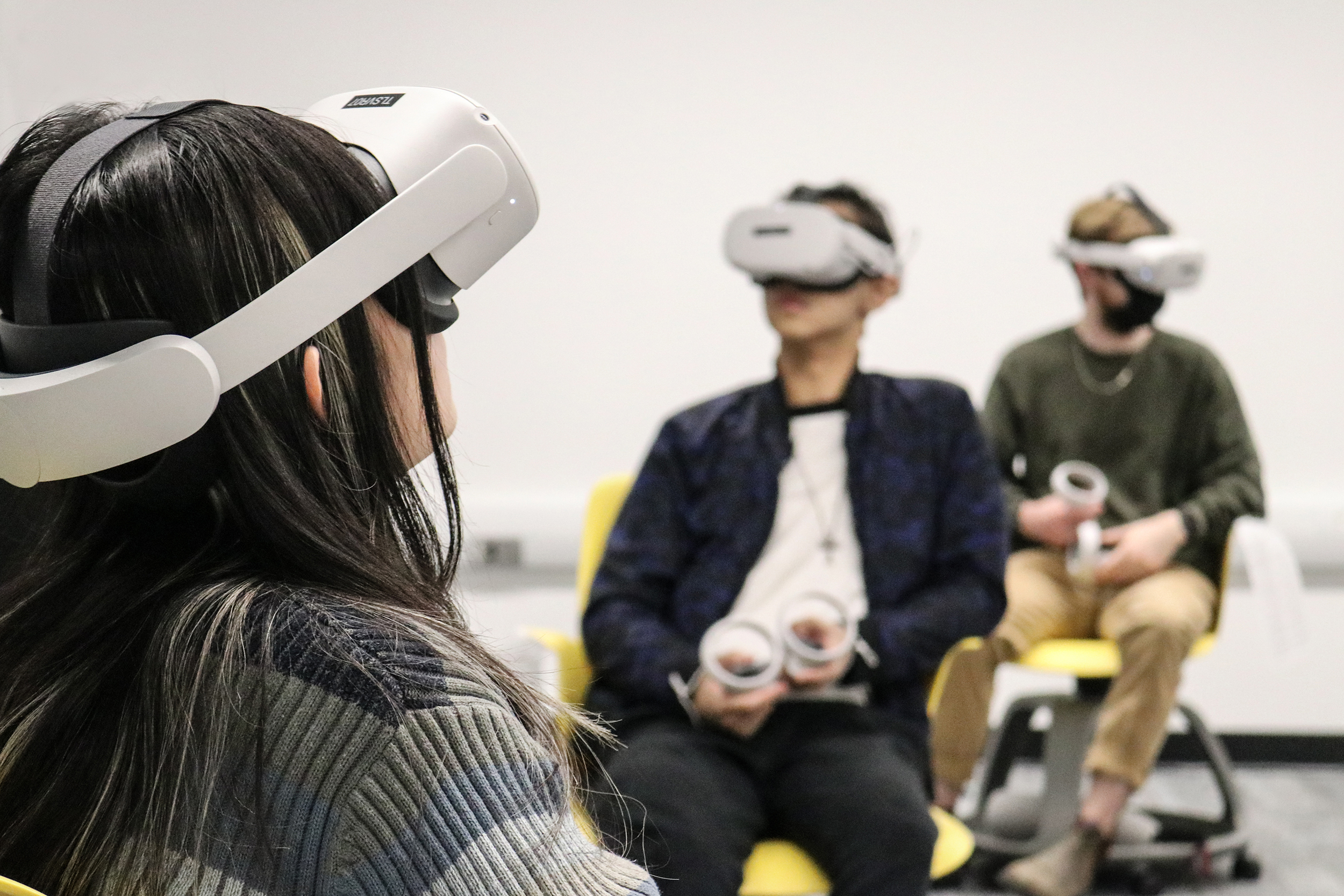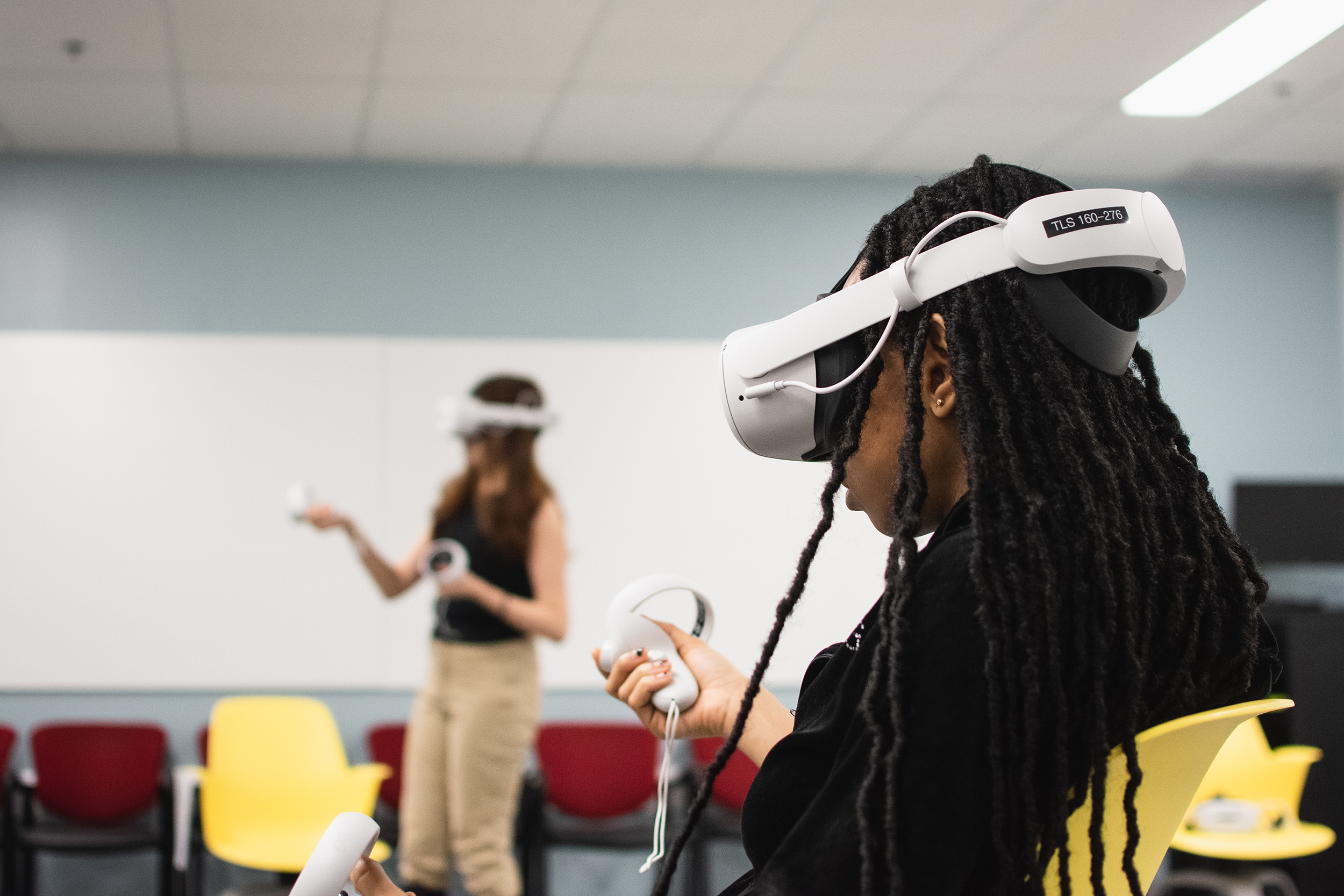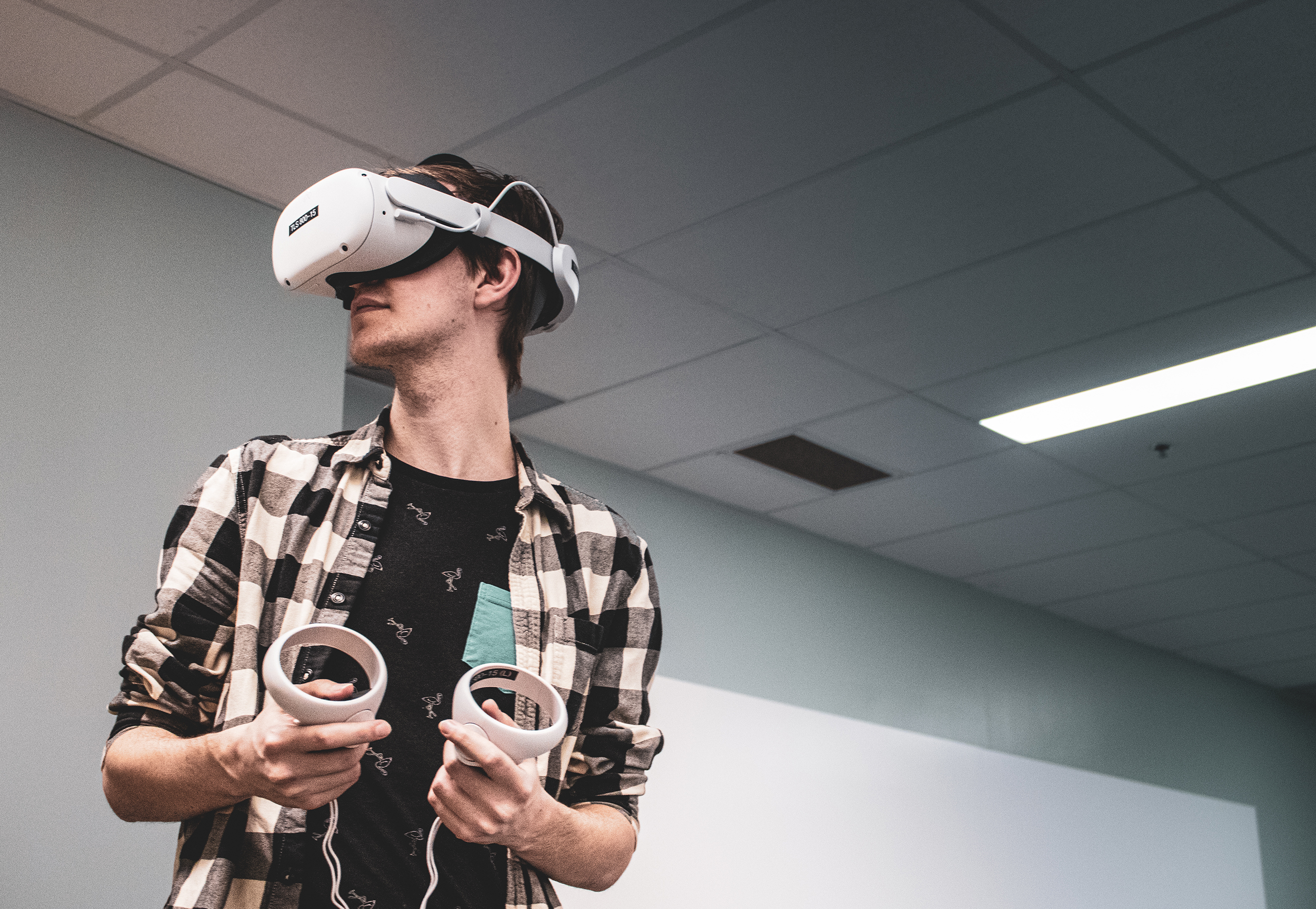Story and Photos by Bryan Gagnon
Students in the FILM 3808B Cinema and Technology course participated in Carleton’s first Virtual Reality (VR) film screenings in the Future Learning Lab.
The course aims to introduce students to various technological developments and their impacts on the identity of cinema: its aesthetic qualities, the way we make films and the type of experiences it proposes.
Of particular interest to the course is the study of VR in the immersive media sector — its burgeoning impacts on cinema, filmmakers and viewers alike.

Students participating in a Virtual Reality (VR) film screening.
The Immersive Nature of Virtual Reality Films
While virtual VR itself is not new — it has been around for over 50 years in various forms — it is gaining in popularity and changing how filmmakers make movies and how viewers experience them.
The power and allure of VR films lie in their ability to place the viewer into a film’s environment — the viewer is part of the surroundings and can be an active protagonist that influences how the story unfolds.
But the immersive nature of VR films can also be a barrier for those wishing to view them. The cost of VR equipment remains restrictive, and aside from film festivals and digital exhibits, the availability of films is limited.
For course instructor Philippe Bédard, it demonstrates how the Future Learning Lab is providing a valuable service towards the study of these films.
“It’s hard to access VR equipment to view these films, and at the same time, crucial to see and experience them firsthand. I’m lucky this year to be able to screen these films in class to give students the firsthand experience that is vital in talking about them.”
Students participating in the screenings had a wide variety of films to experience that included a tour of the White House guided by the Obamas, space missions aboard the International Space Station, and much more.

Students participating in a Virtual Reality (VR) film screening.
For Sonique Salmon-Saunder, a film Major and one of the students who participated in the screenings, the personalized experience was unforgettable.
“I’ve enjoyed VR outside of school, so being able to do that in school was amazing,” Salmon-Saunder says. “It was an immersive experience that allowed me to interact with different options. Having the choices, I think, is what creates the overall experience of VR itself.”
Bédard highlights another potential benefit to the first-person experience of VR films — the potential to combat generative Artificial Intelligence (AI) tools like Chat-GPT.
“AI tools write responses as good as the average writer. But by basing the student’s writing on their personal experience, I’m hoping they find their own words to express what they went through,” says Bédard.

A student views a VR film in the Future Learning Lab.
About the Future Learning Lab
The Future Learning Lab encourages innovation and student-centred teaching through a physical space and various programs, including undergraduate research opportunities and innovation grants. It provides physical and virtual spaces for instructors to experiment with pedagogical design and enhanced study spaces for individual, group, and collaborative learning.
The lab will be enhanced with the addition of the Experiential Learning Hub in Southam Hall (6th floor), opening in September 2023. It will feature three new spaces to support experiential learning using XR media: a Teaching Studio, a Creation Studio, and an Experience Studio.